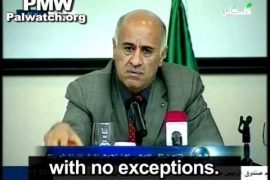1) The INSS provides analysis on the topic of the renewal of relations between Iran and Saudi Arabia.
“The announcement by Iran and Saudi Arabia on the renewal of diplomatic relations, after seven years of hostility and severed relations, came as a surprise to many elements, since the negotiations were conducted out of the public eye and mediated by a surprising third party – China. What are the implications of the rapprochement between Tehran and Riyadh for Israel and the region, and does this effectively block Saudi Arabia from joining the Abraham Accords in the future?”
2) At WINEP, Moran Stern discusses factors behind the rise in violence in Palestinian Authority controlled areas.
“Violence is on the rise again in the West Bank, and the main internal reasons for the surge seem to lie in two notable social and political trends that intersected over the past year. First, more young Palestinians have become frustrated and disillusioned with their local situation. Second, the Palestinian Authority’s long-running crisis of legitimacy has increasingly prevented it from imposing control in key areas. The result has been more motivation and opportunities for violence.”
3) At the JCPA, Jacques Neriah looks at ‘The Illusion of a Lebanese State’.
“The disintegration of the Lebanese body politic is proceeding at an accelerated speed, creating a situation in which the different political factions concede that all efforts meant to reach a political solution that would allow Lebanon to climb out of the abyss today are no longer available.
As many times before, Lebanon has been left without a president since October 31, 2022, and a caretaker government with no genuine powers or legitimacy. The historical core agreement considered a sort of “holy alliance” that governed state politics for the last 17 years has ended without fanfare.”
4) The FDD reports on a fatwa against Hamas.
“The Islamic Fatwa Council — a non-governmental clerical body headquartered in Najaf, Iraq — issued a fatwa, or religious edict, last week condemning Hamas’ repression of Palestinians in Gaza and calling on the terrorist group to make peace with Israel. The council stated that Hamas was responsible for racketeering, extortion, the use of child soldiers, and falsely accusing Palestinians of treason. The fatwa dictates that Muslims should not “pray for, support, finance or fight on behalf of Hamas.””





